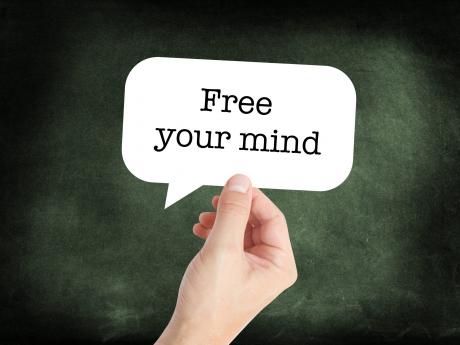Within the Mind | Dealing with depression
Critics often say, "What you're going through is all in your mind," and maybe it really is. You don't have to be clinically diagnosed to be suffering from issues affecting your mind, and in other cases, your body and even your spirit.
Welcome to Within the Mind, where we will address topical issues that affect many in society.
Twenty-eight-year-old Shauna Aubry* of St Andrew was aware of her mental state at an early age, but it was only years after that she learnt how chronic it was.
"I used to cry myself to sleep at nights - when I could manage to get to sleep. Most nights, I would stay awake and worry. Eventually, when I was about 15 years old, I found out that the sleeplessness was due to insomnia, and this discovery led me to further research. That was when I recognised that I was severely depressed," she revealed to Outlook.
Associate Clinical Psychologist Justine East quotes the Diagnostic Statistical Manual of Mental Disorders (5th Edition) in defining depression, "Depression involves the presence of sad, empty, or irritable mood, as well as physical and mental changes that greatly affect a person's ability to function."
East went on to note that these changes represent a change in the person's previously observed behaviour as well as affecting aspects of the individual's ability to function daily.
Aubry recognised that there was something in her that was changing. She was constantly morose, angry, and worried. Her self-confidence and sense of self-worth had plummeted. At first, she could not understand why. After she realised that she could be suffering from depression, her mother arranged with her to speak with a counsellor.
This allowed Aubry to get the help she needed, unlike so many who are usually afraid to seek help. Aubry was desperate for a change.
While she was able to figure out the root of her problem, the counselling did not help. It was not until she met her husband and he introduced her to his pastor that she found out the true cause of her depression.
"I got intense sessions of counselling with him and we spoke about everything. I then learnt that I was depressed because of my chemical make-up," she told Outlook.
It is not uncommon that mental problems are sometimes unavoidable.
"While some mental problems may be brought on by past life stressors, or what we are currently, for example drug use, some are due to genetic or biological make-up and chemical imbalances in the brain, which we have no control over," East advised.
Having someone who could actually help offered some relief, as Aubry did not fully understand what she was going through.
"I have been told to just get over it, that it's not that serious or that I do not need counselling or medication, and that I am letting my problems conquer me," she told Outlook.
Aubry has been called dramatic, mentally ill and weak.
"Having a mental health problem does not mean that a person is weak or inferior, and we all experience some challenges, whether it's feelings of inadequacy, being easily or overly angry, feeling unhappy, socially withdrawn, anxious about performing in front of others or maybe there's something in our past that is still bothering us and we can't seem to let it go," she explained.
Luckily for her, there have been a few persons who have always been supportive, especially her husband, David*. While she admits that he does not understand everything about her condition, his openness and support know no bounds.
FINDING WAYS TO COPE
She admits that she has not completely overcome her depression, and this might be a lifelong challenge; however, she has found ways to cope.
"I have stopped counselling now and I am still plagued by the awful feelings, but I exercise and try to eat right. My circumstances have changed enough that I can try to manage the worst days when they come," she said.
East notes that mental health is just as essential as physical health. Persons are more likely to see physical problem or its effects, while issues with their emotional health go unnoticed. However, it is important to know that mental health issues come in many forms and varying degrees, and they can also lead to physical problems.
"There are numerous opportunities for people to get confidential help, as it should be, in Jamaica," East adds. One should note a common misconception is that mental health automatically means medication. This is not the case, as there are many ways to deal with various concerns.
Here are five signs that you might be suffering from depression:
1. Always feeling sad or crying.
2. Lack of interest and pleasure in activities, especially ones you once enjoyed, such as going out with friends.
3. Not eating as much as you used to or eating more.
4. Lost or gained a lot of weight without trying to.
5. Having trouble seeping or sleeping too much.
Do not self-diagnose, seek professional help if you think you are suffering from any mental issue. Keep reading as we tackle other mental health issues in the coming weeks with advise as to what is a healthy mental health routine.
*Name changed upon request


